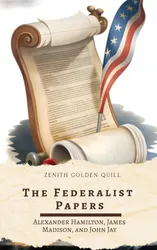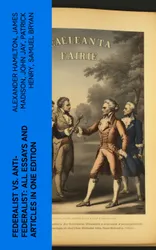The Federalist Papers is a series of 85 articles arguing in favor of ratification of the United States Constitution by the thirteen original colonies. Federalist No. 74 discusses the powers of the president as commander-in-chief and to grant pardons and reprieves. Hamilton asserts that the role of commander-in-chief is inherent in the office itself and requires the speed and resolve of a single decision-maker. He argues that vesting such powers among multiple executives could prove disastrous in the real world of military conflict. A similar argument is made regarding the power to pardon and issue reprieves, sensing correctly that group psychology might suppress the compassion to grant mercy or the courage to uphold justice when the case seems to demand it. Interestingly, he cites the need to act swiftly to grant pardons in certain situations in order to capitalize on a fleeting possibility to resolve a difficult situation, particularly in the event of rebellion. The power to grant pardons has been controversial at times, with concerns that pardons are granted for political purposes rather than to serve justice or mercy.

The Federalist Papers : Complete Founding Fathers' Writings
Alexander Hamilton, James Madison, John Jay, Zenith Horizon Publishing
book
The Federalist Papers : A Foundational Guide to American Government, Liberty, and Constitutional Law
Alexander Hamilton, James Madison, John Jay, Zenith Golden Quill
book
The Federalist Papers : Foundational Essays on Liberty, Law, and the United States Constitution
Alexander Hamilton, James Madison, John Jay, Zenith Evergreen Literary Co
book
Federalist Versus Anti-Federalist in America : Debating Democracy: The Founding Fathers' Epic Struggle for Federalism and Freedom
Alexander Hamilton, James Madison, John Jay, Patrick Henry, Samuel Bryan
book
Federalist & Anti-Federalist Papers - Complete Edition : U.S. Constitution, Declaration of Independence, Bill of Rights, Important Documents by the Founding Fathers & more
Alexander Hamilton, James Madison, John Jay, Patrick Henry, Samuel Bryan
book
The Federalist Papers : Including Declaration of Independence & United States Constitution
Alexander Hamilton, James Madison, John Jay
book
Federalist vs. Anti-Federalist: ALL Essays and Articles in One Edition : Founding Fathers' Political and Philosophical Debate, Their Opinions and Arguments about the Constitution:
Alexander Hamilton, James Madison, John Jay, Patrick Henry, Samuel Bryan
book
Federalist vs. Anti-Federalist: ALL Essays and Articles in One Edition : Founding Fathers' Political and Philosophical Debate, Their Opinions and Arguments about the Constitution:
Alexander Hamilton, James Madison, John Jay, Patrick Henry, Samuel Bryan
book
The Federalist & The Anti-Federalist Papers: Complete Collection
Alexander Hamilton, James Madison, John Jay, Patrick Henry, Samuel Bryan
book
Hamilton's Economic Policies : Works & Speeches of the Founder of American Financial System
Alexander Hamilton, Emory Speer
book
Hamilton's Economic Policies : Works & Speeches of the Founder of American Financial System
Alexander Hamilton, Emory Speer
book
Federalist Versus Anti-Federalist in America
Alexander Hamilton, James Madison, John Jay, Patrick Henry, Samuel Bryan
book
